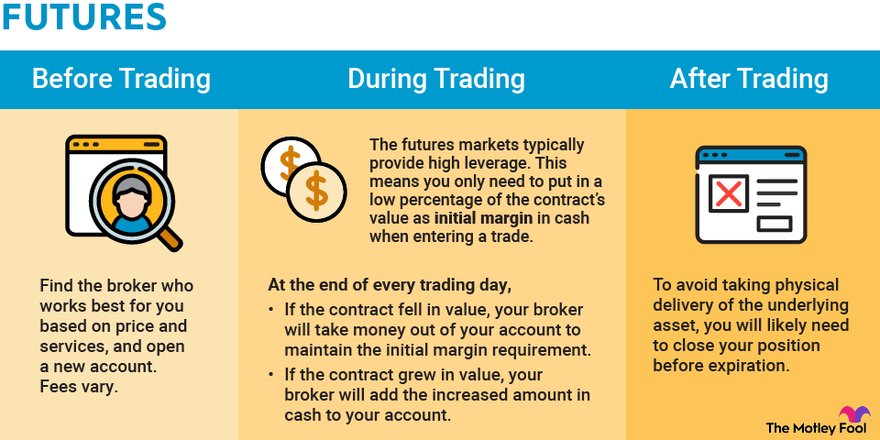The Role of Futures Trading in Today's Market
The Role of Futures Trading in Today's Market
Blog Article
Futures trading can often seem like a complicated and overwhelming financial venture. But, when approached strategically, it can be quite a effective software for reaching long-term financial goals. futures trading discount, their potential benefits, and how it may be leveraged effectively for sustainable gains.
What is Futures Trading?
At its key, futures trading requires contracts to purchase or promote a certain advantage at a predetermined price on another date. These agreements are standardized and dealt on controlled exchanges. Popular futures areas contain commodities like crude fat, gold, and agricultural services and products, in addition to economic instruments like inventory indices and currencies.
Futures contracts are distinctive because they let traders to suppose on the price action of resources without really owning them. This opens up opportunities for income in equally increasing and falling markets.
As an example, if your trader feels raw fat rates increases, they could enter a long place by investing in a futures contract. However, if they anticipate rates can decline, they are able to have a small position by offering a contract.

Great things about Futures Trading for Long-Term Increases
1. Influence and Money Efficiency
One of the important features of futures trading is their high leverage. With a tiny preliminary margin deposit, traders may get a grip on a bigger position size. That efficient utilization of capital enables investors to probably improve returns. Nevertheless, warning is important, as control also magnifies losses.
2. Diversification Possibilities
Futures markets offer usage of a wide variety of resources, from commodities to financial instruments. That diversified coverage can help investors hedge against risks in different areas of their portfolios. Diversification is an essential strategy for reducing overall portfolio volatility within the long term.
3. Hedging Against Industry Risks
Futures are outstanding instruments for hedging. Corporations usually use them to protect against unfavorable industry changes. For instance, a character would use futures contracts to lock in purchase prices for crops, ensuring stable money despite changing industry conditions. Similarly, long-term investors can use futures to harmony risk in their portfolios during uncertain financial periods.
4. Liquidity and Visibility
Futures areas are known for their high liquidity. This ensures that traders can certainly enter and quit positions with minimal value impact. Additionally, futures contracts are traded on regulated transactions, giving visibility and reduced counterparty risks.

Tips for Long-Term Success in Futures Trading
While futures trading presents significant options, effective long-term trading involves control and technique:
Understand Market Tendencies: Remain current on market movements and economic signs that influence asset prices.
Collection Distinct Goals: Define your economic objectives and create a disciplined trading approach.
Handle Dangers: Use stop-loss orders and diversify your portfolio to mitigate risks.
Continuous Understanding: Futures trading involves an understanding curve. Remaining educated and changing techniques with time is crucial.
Unlocking Long-Term Increases with Futures
Futures trading is not just for short-term speculators. When used thoughtfully, it could be a effective tool for reaching long-term financial gains. By leveraging the initial options that come with futures agreements, such as for instance diversification, leveraging capital, and hedging chance, investors can build sustainable methods for wealth growth.
Report this page